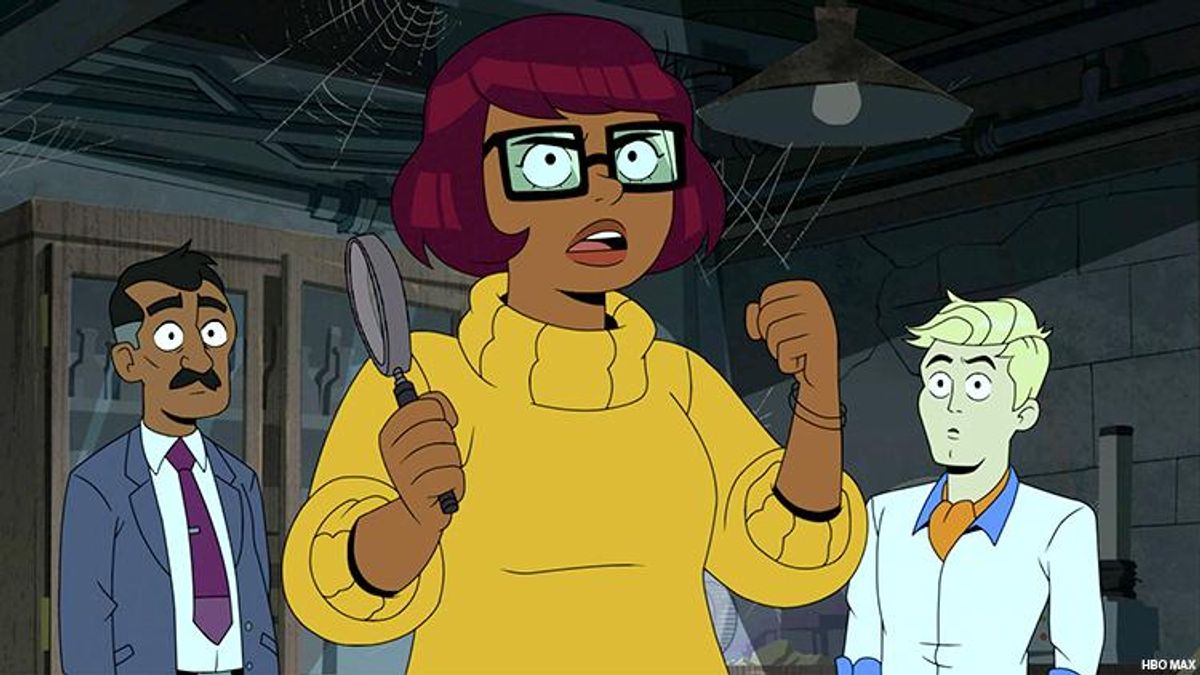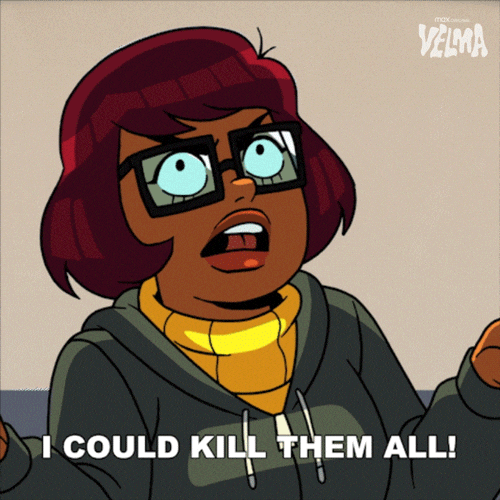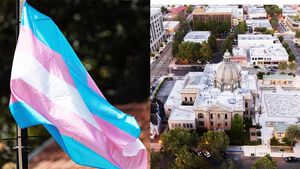Editor's note: this review of HBO Max's animated series Velma contains spoilers.
When Velma premiered on HBO Max this past week, it became the streamer's most-watched animated series debut ever. However, it also became one of the worst-reviewed shows of the last few years.
Unfortunately, most of the hate being aimed at the show isn't just a huge overreaction to a fairly good show with a lot of potential, but it's also led by an angry mob of online trolls who haven't watched the show and wouldn't give it a fair shake if they did.
At the time of writing, Velma has an absurd 6 percent audience score on Rotten Tomatoes and a 1.4 (out of 10) star rating on IMDb. Some viewers are calling it one of the worst shows they've ever seen. Those viewers are not telling the truth (and most of them have only seen the first two episodes, not the entire series).
It's not just the faith that's bad in these criticisms -- it's the rationality, logic, and the basic media literacy. Velma is a good show.
![]()
Most of the show's critics are bombing it because they claim it is "racist" (Velma makes jokes about white people buying drugs because they have too much money or are bored and calls Fred a privileged white guy) and "wokeness gone too far."
These complaints hold so little water it's barely worth addressing. Velma isn't racist and it's not "diversity for diversity's sake." It's a fun update of classic characters that fills them out into more than just their source material. Here, these kids are characters who have a chance to grow and become their own thing.
Many of the critics themselves are being racist. The show was created by a white man named Charlie Grandy, but all of the hate is being levied at Mindy Kaling, the woman of color who executive produces and stars.
Some haters online have also begun calling the lead character "Black Velma" because they didn't watch the show before they judged and reviewed it and are racist enough to not know the difference between Black people and South Asian people.
Many more are complaining that Shaggy, who goes by his birth name Norvillle in this series, is Black. They think because he grows up to be a stoner, he can't possibly be Black unless the show is itself being racist. Or maybe they just don't want their favorite white guy to be Black.
Other critics are complaining that the series' humor relies on things like pop culture references, meta-humor, and edgy jokes about sex, drugs, and violence. If those things (which are all hallmarks of animation made for teens and adults) aren't your style, you can watch Bluey or A Pup Named Scooby-Doo.
Yes, each of the first two episodes features a couple groan-worthy jokes, but each episode had me laughing out loud at least five times as much. It's not offensively bad, or boringly bad, or even just plain bad at all.
Some jokes don't land, including one about comedians and #MeToo that is meant to show that Velma has terrible opinions but instead comes across as more making fun of the movement than making fun of Velma.
But a lot more do land, like Norville hating drugs, but inadvertently becoming an icon to stoners who love his taste in snacks and music, Fred not being able to cut his own food, and Daphne's mom seeing Velma on TV sending a message to Daphne and thinking its for her.
Even if the writing was as bad as some critics are saying, the voice acting, animation, and direction make the show good enough to at least warrant a 6 or 7/10. The animation in the series is great, especially when we see Velma's hallucinations. It's vibrant, beautiful, and genuinely scary.
The voice acting is a special standout in the series. Kaling makes a delightfully unlikable Velma, following in the tradition of Beavis and Butthead, Peter Griffin, and Bojack Horseman. If she were a white man, white male fans would be lining up to worship her.
Constance Wu is a perfect popular-girl Daphne, and Sam Richardson's Norville voice has hints of becoming Shaggy in the future but is still his own cute character. Glenn Howerton especially stands out as the privileged and immature spoiled brat Fred.
It's a real shame that audiences are review-bombing the series, because queer fans would love the dynamic between Daphne and Velma. The two used to be best friends before Daphne got hot and became popular. Now they hate each other.
Underneath the hate and resentment, though, is a very real and heartwarming romance. While Daphne was dating Fred, and Velma has a crush on him, the two also have very relatable feelings for each other. They miss their best friend and wonder what could have been, plus they're both wildly fun disaster gays.
This all leads to a kiss between the two characters -- something fans have been wanting for fifty years -- in just the second episode. And it's great!
If Velma can iron out a few kinks, and workshop a few of its worse jokes, it'll become a great lead in for Harley Quinn.
Time will vindicate Velma. It's already been renewed for a second season at HBO Max.
In two years after the second season finale has aired and we're all excitedly looking forward to season three, we'll look back and laugh at this ridiculous overreaction, and hopefully, the people who piled on for racist and misogynistic reasons will feel embarrassed.
Velma airs on HBO Max, with two new episodes dropping each Thursday until February 9.
RELATED | 24 LGBTQ+ TV Shows Renewed For 2023



























































































